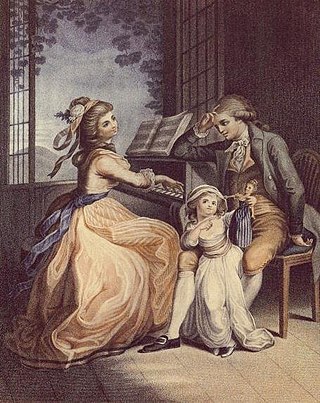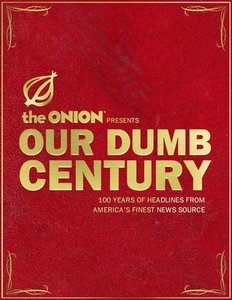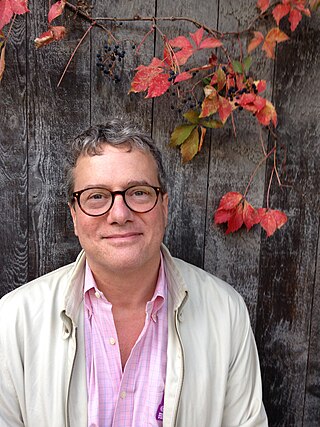Media bias is the bias of journalists and news producers within the mass media in the selection of many events and stories that are reported and how they are covered. The term "media bias" implies a pervasive or widespread bias contravening of the standards of journalism, rather than the perspective of an individual journalist or article. The direction and degree of media bias in various countries is widely disputed.
Slashdot is a social news website that originally billed itself as "News for Nerds. Stuff that Matters". It features news stories on science, technology, and politics that are submitted and evaluated by site users and editors. Each story has a comments section where users can add online comments.

A copycat suicide is defined as an emulation of another suicide that the person attempting suicide knows about either from local knowledge or due to accounts or depictions of the original suicide on television and in other media. The publicized suicide serves as a trigger, in the absence of protective factors, for the next suicide by a susceptible or suggestible person. This is referred to as suicide contagion.
News style, journalistic style, or news-writing style is the prose style used for news reporting in media such as newspapers, radio and television.

The news media or news industry are forms of mass media that focus on delivering news to the general public. These include news agencies, newspapers, news magazines, news channels etc.
The headline or heading is the text indicating the content or nature of the article below it, typically by providing a form of brief summary of its contents.

David Drew Pinsky, commonly known as Dr. Drew, is an American media personality, internist, and addiction medicine specialist. He hosted the nationally syndicated radio talk show Loveline from the show's inception in 1984 until its end in 2016. On television, he hosted the talk show Dr. Drew On Call on HLN and the daytime series Lifechangers on The CW. In addition, he served as producer and starred in the VH1 show Celebrity Rehab with Dr. Drew, and its spinoffs Sex Rehab with Dr. Drew, Celebrity Rehab Presents Sober House. Pinsky currently hosts several podcasts, including The Dr. Drew Podcast, This Life with Dr. Drew, Dr. Drew After Dark on the Your Mom's House network, and The Adam and Drew Show with his former Loveline co-host Adam Carolla.

The propaganda model is a conceptual model in political economy advanced by Edward S. Herman and Noam Chomsky to explain how propaganda and systemic biases function in corporate mass media. The model seeks to explain how populations are manipulated and how consent for economic, social, and political policies, both foreign and domestic, is "manufactured" in the public mind due to this propaganda. The theory posits that the way in which corporate media is structured creates an inherent conflict of interest and therefore acts as propaganda for anti-democratic elements.

Our Dumb Century: The Onion Presents 100 Years of Headlines from America's Finest News Source is a satirical humor book written by the staff of The Onion and published by Three Rivers Press in 1999. The chief editor of the book was Scott Dikkers, with specific sections edited by Robert D. Siegel, Maria Schneider and John Krewson. It was awarded the 1999 Thurber Prize for American Humor.

Drew Curtis is the founder and an administrator of Fark, an Internet news aggregator. He is also the author of It's Not News, It's FARK: How Mass Media Tries to Pass off Crap as News in May 2007. He is a guest on WOCM's morning show The Rude Awakening Show every Tuesday. Curtis was the Independent gubernatorial candidate for Governor of Kentucky in 2015 but lost to the Republican nominee Matt Bevin.
In journalism, mainstream media (MSM) is a term and abbreviation used to refer collectively to the various large mass news media that influence many people and both reflect and shape prevailing currents of thought. The term is used to contrast with alternative media.
The byline on a newspaper or magazine article gives the name of the writer of the article. Bylines are commonly placed between the headline and the text of the article, although some magazines place bylines at the bottom of the page to leave more room for graphical elements around the headline.
Bus plunge stories are a nickname for a journalistic practice of reporting bus accidents in short articles that describe the vehicle as "plunging" from a bridge or hillside road. The phenomenon has been noted in The New York Times, which published many bus plunge stories from the 1950s through the 1980s, running about 20 such articles in 1968 alone.
Pharming parties is a media-invented term describing alleged get-togethers where prescription drugs are exchanged and randomly ingested, in order to become intoxicated. The earliest mention of the term appears to have been in the March 8, 2002 issue of the newspaper Public Opinion, which said this was occurring "in some communities". The pharm party story has since spread to periodicals and television stations throughout the United States, including reputable, mainstream sources such as Time and the Washington Post.
Jack Shafer is an American journalist who writes about media for Politico. Prior to joining Politico, he worked for Reuters and also edited and wrote the column "Press Box" for Slate, an online magazine. Before his stay at Slate, Shafer edited two city weeklies, Washington City Paper and SF Weekly. Much of Shafer's writing focuses on what he sees as a lack of precision and rigor in reporting by the mainstream media, which he says "thinks its duty is to keep you cowering in fright." One frequent topic is media coverage of the War on Drugs.

Timothy Robert Noah, an American journalist and author, is a staff writer at The New Republic. Previously he was labor policy editor for Politico, a contributing writer at MSNBC.com, a senior editor of The New Republic assigned to write the biweekly "TRB From Washington" column, and a senior writer at Slate, where for a decade he wrote the "Chatterbox" column. In April 2012, Noah published a book, The Great Divergence, about income inequality in the United States.
A social news website is a website that features user-posted stories. Such stories are ranked based on popularity, as voted on by other users of the site or by website administrators. Users typically comment online on the news posts and these comments may also be ranked in popularity. Since their emergence with the birth of Web 2.0, social news sites have been used to link many types of information, including news, humor, support, and discussion. All such websites allow the users to submit content and each site differs in how the content is moderated. On the Slashdot and Fark websites, administrators decide which articles are selected for the front page. On Reddit and Digg, the articles that get the most votes from the community of users will make it to the front page. Many social news websites also feature an online comment system, where users discuss the issues raised in an article. Some of these sites have also applied their voting system to the comments, so that the most popular comments are displayed first. Some social news websites also have a social networking service, in that users can set up a user profile and follow other users' online activity on the website.

Fark is a community website created by Drew Curtis that allows members to comment on a daily batch of news articles and other items from various websites. The site receives many story submissions per day and approximately 100 of them are publicly displayed on the site, spread out over the main page as well as topical tabs that are organized as entertainment, sports, geek, politics and business). Curtis says the stories are selected without intentional political bias, but that he tries to run both far-left and far-right articles.

Clickbait is a text or a thumbnail link that is designed to attract attention and to entice users to follow that link and read, view, or listen to the linked piece of online content, being typically deceptive, sensationalized, or otherwise misleading. A "teaser" aims to exploit the "curiosity gap", providing just enough information to make readers of news websites curious, but not enough to satisfy their curiosity without clicking through to the linked content. Clickbait headlines often add an element of dishonesty, using enticements that do not accurately reflect the content being delivered. The "-bait" suffix makes an analogy with fishing, where a hook is disguised by an enticement (bait), presenting the impression to the fish that it is a desirable thing to swallow.









